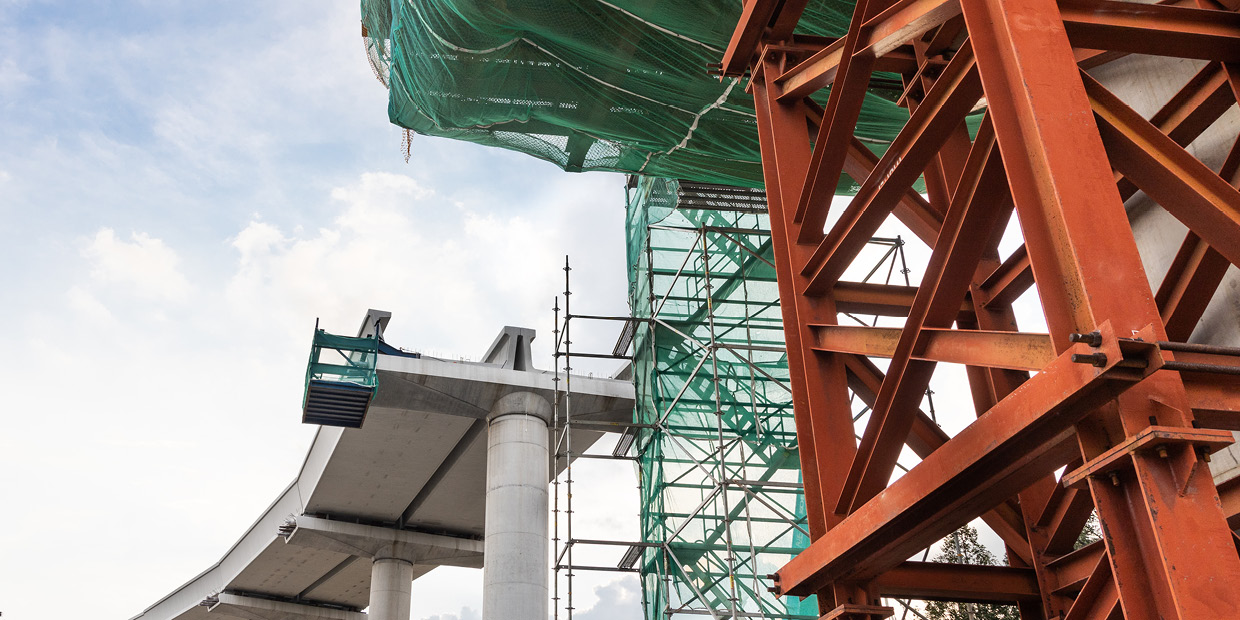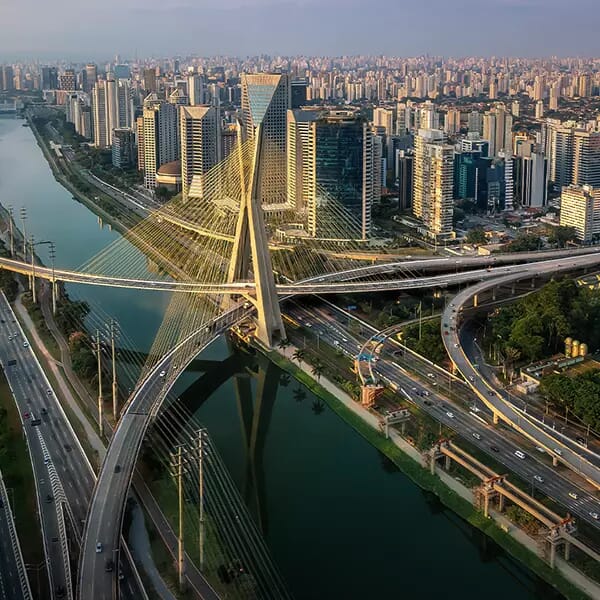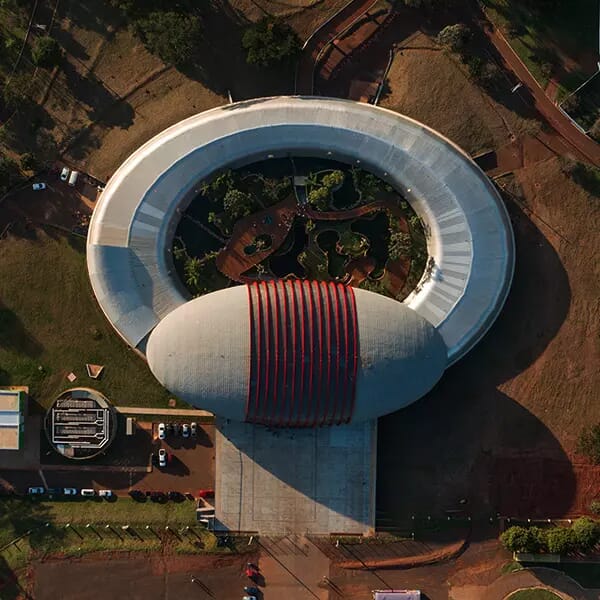 Credit: Den Rise / Shutterstock
Credit: Den Rise / ShutterstockRethinking Dispute Resolution in India’s PPP Infra Project
The Government of India has enormously promoted infrastructure development in India under the Public-Private Partnership (PPP) in areas where private sector investment is needed. Initiated as a part of 'liberalisation, delicensing and privatisation' regime of 1990, India has had an astounding record of mainstreaming private capital and embellishing it for the advancement of the infrastructure sector, particularly in areas like expressways and ports. Central as well as the State Governments have taken steady endeavours to empower private investments and limit the bottlenecks through policy and regulatory frameworks. Such endeavours include standardising contractual documents as sector specific model agreements or concession agreements, setting up of institutional instruments like Indian Infrastructure Finance Company Ltd, India Infrastructure Project Development Fund etc.
Irrespective of such endeavours, there are numerous conflicts/disputes which arise on a daily basis between the parties during the various stages of construction, functioning, maintenance etc. of such infrastructure projects under the PPP model. In India, there is a massive backlog of cases which relate to the infrastructure projects before the various courts as a result of which the infrastructure sector is facing issues. Many private players are prepared to invest and form joint ventures to promote infrastructure in India, but they are concerned that if a dispute arises, the process of resolution of dispute takes a long time which in return increases the project's overall cost as a result of which the private players tend to avoid participation in the PPP projects. In this background, the Knowledge Session was held by GRI to understand the concerns of the stakeholders and also the views of the Senior Counsel who regularly appears for such developers in disputes.
 Credit: ThamKC / Envato Elements
Credit: ThamKC / Envato Elements
Key challenges of dispute resolution process in infrastructure sectors
Litigation is not the preferred method of dispute resolution because of variables like possible postponement and the requirement for specialised information etc. Usually, the parties prefer numerous other methods for dispute resolution like conciliation, mediation, arbitration, expert adjudication and amicable settlement.
In India, it is noticed that the parties are often forced to resort to litigation as the final dispute resolution method due to the failure of parties to acknowledge the settlements using the other alternative dispute resolution methods. In most of the countries, arbitration is the preferred method for resolving such disputes. However, in India, the susceptibility of the award to judicial challenge makes arbitration less attractive. It is also noted that, as retired judges and practicing lawyers more often constitute the panel, there is a tendency to stick to procedural aspects and the lack of knowledge and flexibility often undermines the effectiveness of arbitration as an alternative mode. Therefore, instead of resorting to alternate dispute resolution methods, the parties are compelled to approach the Courts in India to get their disputes resolved finally.
Further, when a Government entity is a party to the contract and is involved in the dispute, the government entity usually exhausts all the possible dispute resolution methods before accepting the final decision which postpones the matter. Government is an advocate of privatisation of most sectors by attracting domestic and foregin investments. On time investment returns is one of the main criteria for a private investor. It is important that the Government entities understand the time value of money and agree to faster resolution of disputes. It is not possible for the parties to sustainably function the projects without working capital and if the major capital of the parties is caught up in disputes, the parties end up going bankrupt. Therefore, it is important that disputes are resolved in a faster manner.
Apart from the usual changes that are required to be made to the judicial system in India like constitution of more benches, swift resolution of disputes etc. the members discussed other approaches that can be adopted by the parties for a better dispute resolution process in relation to the infrastructure sector. Some of such methods are discussed below.
Focus should be more on the strategic approach instead of the legal approach
In case of a dispute relating to huge infrastructure projects, interim relief is one of the most crucial aspects involved in the resolution process as obtaining final remedy usually takes time. From a legal standpoint, the private parties cannot afford to wage a legal war for 8 to 10 years and the goal is to obtain relief as quickly as possible. In such cases, it is important that the parties focus on a strategic approach other than focusing on the legal approach. The parties should work on the strategy on a case to case basis instead of following the usual norms followed in the industry. One such strategy that may be adopted by the parties is to approach lower courts to obtain the interim relief as against approaching the higher courts at first instance. This is also to be considered as failure to obtain relief from the high court in the first instance can significantly raise the issues before the stakeholder and it has limited recourse to appeal / review at this stage.
 Credit: Photocreo / Envato Elements
Credit: Photocreo / Envato Elements
Moving beyond the standard forms of contract
As an industry, the parties do not negotiate the terms of contracts while bidding due to the standard form of contract that exists. The standard contracts issued by the Government entities usually have ambiguous and erroneous provisions. The failure of the parties to negotiate the terms of the contract regardless of whether such a standard contract is adequate or not, usually results in future disputes. If the parties start negotiating contracts on project to project basis, this will eradicate a number of future disputes.
Due to the standardised form of contracts in our country, two essential provisions are usually neglected by the parties. First, the right of the contractor to suspend performance in case of an inordinately delayed payment is not included in the contract which causes numerous distortions. This right allows the contractor to seek interest on payments and thereafter, terminate the contract if such payments are not made. Second, the standard contracts do not include provisions for swift interim dispute resolution. Due to the absence of such provision, arbitration usually becomes the first option available to the parties. It is necessary that the parties negotiate the terms of the contract and include such provisions for faster resolution of disputes.

Credit: Wutzkoh / Envato Elements
Importance of having subject matter experts as Arbitrator or at the Bench
Judges in the High Courts and Supreme Courts are unfamiliar with the technical concepts which are required for resolution of disputes and understanding how the business operates becomes difficult for them in the absence of professional guidance. As a result, counsels spend a significant amount of time apprising the courts on how the technical aspects involved in the infrastructure sector functions.
It is important that the parties realize that the decision of approaching the Courts and selecting the arbitrator is an important decision. Further, wherever possible, the parties should consider approaching statutory experts. Adjudication by statutory expert bodies like the Appellate Tribunal for Electricity or State Electricity Regulatory Commissions is by all accounts a feasible model for dispute resolution in PPP projects. There are numerous benefits like expertise, efficiency in time, less obstruction by the judiciary, and so on, which can be utilized for organizing a dispute resolution system.
Even though there is a need for the dispute resolution process in India to be improved, the aforementioned suggestions can be taken into account by the parties to improve the dispute resolution process.

Credit: Twenty20Photos / Envato Elements
SAM
Founded on a century of legal achievements, we are one of India’s leading full service law firms. Our mission is to enable business by providing solutions as trusted advisors through excellence, responsiveness, innovation, and collaboration. We are known globally for our integrated approach. Our 600+ lawyers including 116 partners provide exceptional services across practice areas which include General Corporate, Merger & Acquisition, Private Equity, Banking & Finance, Insolvency & Bankruptcy, Competition Law, Dispute Resolution, Projects & Project Finance, Capital Markets, Tax, and Intellectual Property. Helming major headline transactions and litigation across industries, we advise leading multinational corporations on their India entry and legal strategy impacting their business. We have o#ces in seven cities across India - New Delhi, Mumbai, Gurugram, Bengaluru, Chennai, Ahmedabad and Kolkata.
Our Office
India - New Delhi
Amarchand Towers 216
Okhla Industrial Estate Phase III
New Delhi 110 020
+91 11 4159 0700
New Delhi - India
Contacts





